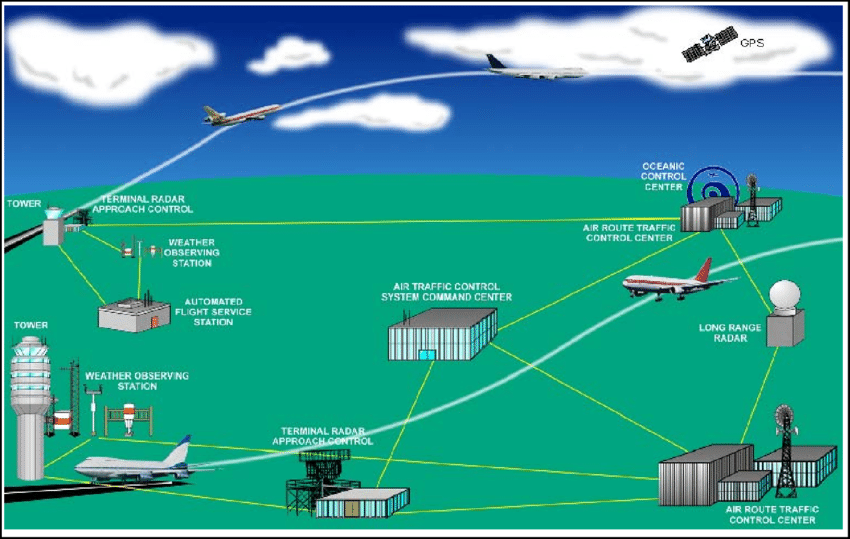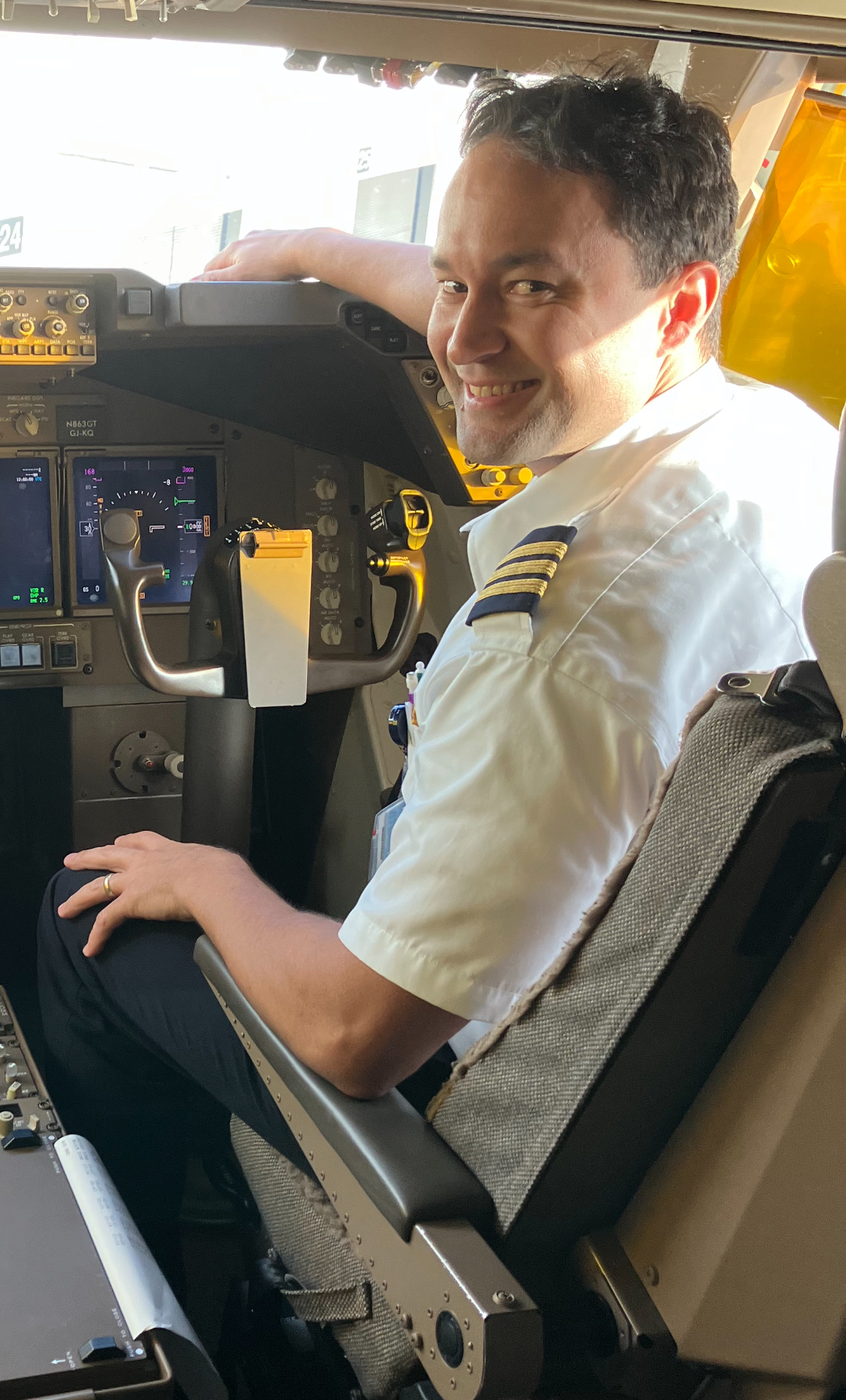practical ATC Communication script for non native english speakers
Grab this ATC communication script below to help you in a tricky situation. It will also have links to the sources so that you can study where it comes from too! We will break it down from preflight to post flight and it is designed for basic VFR flying
bAsic atc communication
script structure
Here's the basic structure for 95% of the ATC communications.
A - to whom you're talking to (ground, tower, practice area)
B - who you are (cherokee 123, cessna 456, random guy on the internet)
C - what you want (request taxi, fully ready for departure, mayday mayday)
D - additional required or requested information (ATIS code, squawk code)
That's it.
Write these down on a notepad or screen shot it for future reference.
Practice making sentences with these in mind.
For example, let's say you're in a cessna 172 with the tail number (N543QB) and want to taxi so that you can take off to the south in VFR flight rules. You also happen to be in Titusville, Florida and ATIS information is B. ATC in their ATIS have said that they wanted you to notify them with B on first contact.
Here's how it would go:
"Titusville Ground, Cessna November fife fower tree Quebec Bravo, request taxi, information Bravo, southbound VFR."
Simple and professional.
A - Titusville Ground
B - Cessna (aircraft type) November fife fower three (five four three in ICAO pronunciation) Quebec Bravo (ICAO alphabet)
C - Request Taxi (what you want)
D - information Bravo (the ATIS code), southbound VFR (you're departing to the south and it's VFR flight rules.)
What you can expect to hear back from professional controllers
You'll hear something back that is similiar.
A - to whom they're talking to
B - who they are
C - what they want
D - any additional information
So let's say Titusville ground wants you to taxi to runway 33 and hold short of it at taxiway S. The ATIS information has changed to Charlie so ground also gives you the wind information (calm winds) and altimeter setting of (29.95 inches.)
So let's make a game of it. I'm going to have some mistakes and let's see if you can fix them. If you don't get it right that's okay. It's just to teach you some more things too!
"43Quebec Bravo, ground. Taxi to runway 33 holding point Sierra. ATIS information C is now current. Winds are calm, altimeter setting 29.95.)
Okay - did you find any mistakes on their part? There aren't any! Tricky tricky teacher...I'm sorry...
Let's break it down.
A - 43 Quebec Bravo: That's a shortened version of your callsign and ATC will do that sometimes which they can and will do (especially if your callsign is very long!)
B - Ground. Again they are shortening their callsign as it is now understood that you both know that you are both talking to Titusville ground. You only really need to be using the full name if it's the first time you're establishing communication.
C - Taxi to runway 33 holding point Sierra. ATC wants you to taxi to the intersection between runway 33 and the taxiway Sierra. "Holding point" is the ICAO term for it...but in the US you might also hear "Hold short of Runway 33 at Sierra.").
D - You've received a new ATIS and the winds are calm with a new altimeter setting.
ATC Communication script
part 3 - what do you read back?
What do you read back? Here you go and although there won't be any tricks this time...see if you can think of ways of shortening this:
Read back clearances have a slightly different ATC communication script but not by much:
A - the instructions
B - additional information that's needed to be read back
C - your callsign (as ATC called you.)
So in the example above it would be:
A - taxi to runway tree tree at holding point sierra.
B - winds are calm and altimeter setting 29.95 inches
C - cessna november fife fower tree quebec bravo.
Okay can this be shortened? You bet it can! Here's how:
A - taxi to 33, holding point sierra
B - 29.95
C - fower tree quebec bravo
Why?
A - it's understood that you're taxiing to a runway and what holding point so you don't need to say runway or taxiway anymore.
B - the only thing that you must read back legally is the altimeter setting. It's been established that you are using inches of mercury so no need to read that back.
C - ATC has already shortened the callsign so there's no need to re-read the whole thing.
Atc communication script self-defense...what to say when you don't understand?
Check out this video on what to say if you don't understand ATC said (and it happens to all of us.).
Check out more videos to find out other things you can do to better your chances of being understood.
Official atc communication
script books
Here are some sources to get yourself familiar with how to speak on the radios.
FAA Publications
In the U.S., the FAA sets the standards for ATC communication. One important guide is the Aeronautical Information Manual (AIM), which teaches pilots how to talk to controllers using the correct words and phrases. Another key document is FAA Order JO 7110.65, which provides detailed instructions for air traffic controllers on how to manage air traffic safely and efficiently.
The FAA emphasizes the use of standard phraseology to avoid misunderstandings. For example, instead of saying "okay" or "yes," pilots and controllers use the word "affirmative." This helps ensure everyone understands each other, even in noisy or stressful situations.

ICAO Publications
For international flights, the ICAO provides guidelines to ensure pilots and controllers from different countries can communicate effectively. The ICAO's Manual of Radiotelephony and other documents outline standard phrases and procedures used worldwide. ICAO phraseology is designed to be clear and concise, reducing the chance of errors. For instance, when a pilot is cleared to land, the controller will say, "Cleared to land runway two-seven," ensuring the pilot knows exactly which runway to use.
Why It Matters
Using standard communication helps prevent accidents and keeps air travel safe. By following the guidelines from the FAA and ICAO, pilots and controllers can work together smoothly, even if they speak different native languages.
Basically, FAA and ICAO publications provide essential rules for ATC communication, helping pilots and controllers around the world understand each other and keep the skies safe.
ATC COmmunication Script Books
Using special Air Traffic Control (ATC) scripts helps pilots and controllers talk clearly and safely. These scripts use the same words every time, so no one gets confused. This is really important when flying planes, especially in busy skies.
Books like "Say Again, Please" can also help you talk on the radio especially in the USA.
Work with me to improve your atc communication script

Let's work together to both improve your ATC communication script and get you speaking like a pilot right away. F
eel free to reach me below and enjoy your first free 30 minutes.
Or check out more on how to get the best ATC communication practice.
Talk soon!
Return to the top